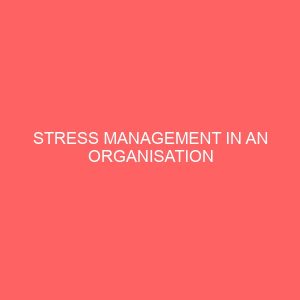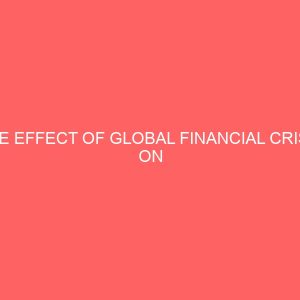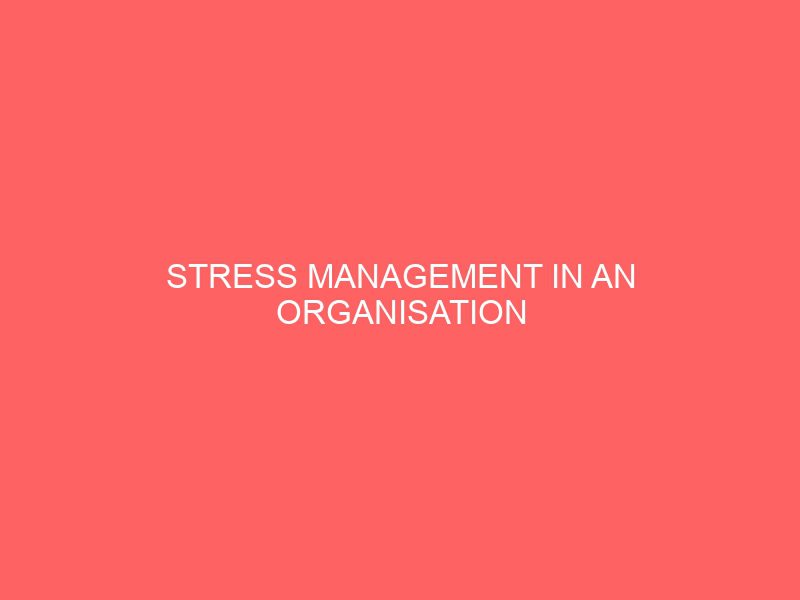Description
Stress is a very complex phenomenon. It is therefore no surprise that there is no commonly accepted definition. A widely used working definition us an adaptive response, mediated by individual differences and/or psychological process that is a consequence of any external environmental action, situation or event that place excessive psychological and/or physical demands on a person.
Hans selye, probably the leading authority on the concept of stress, describes stress as the rate all wear and tear caused by life there are many physical sources of stress such as work overload, irregular work hours, loss of sleep, loud noises, bright light and insufficient light. Psychological sources of stress may be due to a particular situation such as a boring jog, inability to socialize, lack of autonomy, responsibility for results without sufficient authority, unreality, unrealistic objectives, role ambiguity role conflict or a dualcarrer marriage. But what might be stressful to one person may be less so to another, people react differently to situations.
Stress can have various effects on individual as well as the organization. There are psychological effects that may be linked to a variety of illness. Then there are psychological effects such as burnout or boredom. Various kinds of behavior such as drug and alcohol abuse, inordinate food consumption, accidents or withdrawal from the stressful situation absenteesm, excessive labour turn over or be a reaction to stress. Clearly, not only does the individual suffer but the organization may also be affected by the turnover or impaired decision making of its managers and non managers alike.
SOURCES OF STRESS AT WORK
The main sources of stress at work are located in a number of groupings. They may arise from environmental factors, job and organizational factors including the organization culture work place relationship, domestic situation, or personality factor.








Reviews
There are no reviews yet.